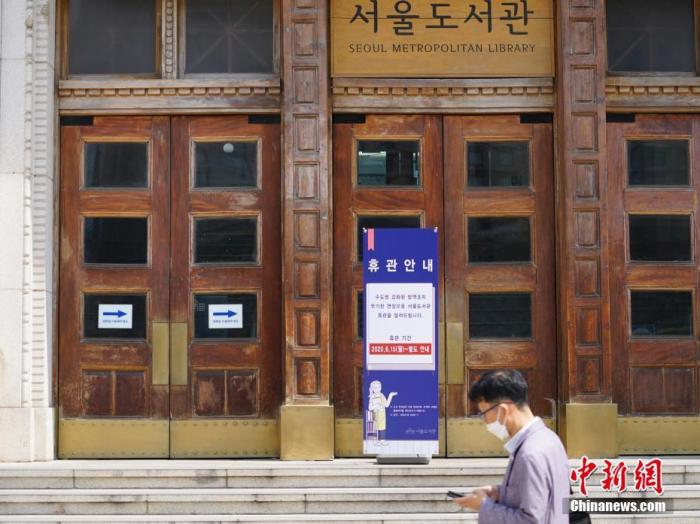Chinanews.com, August 10, according to South Korea’s "Joongang Ilbo" report, on the 9th, the Korea Institute of Economic Research released a report "Analysis and Enlightenment of Temporary Suspended Workers in 2020". The report showed that many temporarily suspended due to the new crown pneumonia epidemic South Korean workers may not be able to return to work.
According to statistics from the Korea Statistics Office, from March to June, the epidemic had a serious impact on various industries, and a total of 4.841 million people in South Korea were temporarily suspended. Because these people did not lose their jobs, they were not included in the list of unemployed persons. However, because they do not have a daily job, these people are actually no different from unemployed persons. Approximately 58.2% of them stated that the temporary suspension was due to company operations and production interruptions.
Data map: South Korea under the epidemic. Photo by China News Agency reporter Zeng Nai
The report pointed out that the problem is that temporary suspension personnel may gradually become unemployed or lose their willingness to seek employment.
The analysis of the Korea Institute of Economic Research shows that for every increase in the number of temporary suspensions, the number of employed persons in the following month will decrease by 0.35 persons, and the inactive population will increase by 0.33 persons. This means that during the COVID-19 pandemic, employees temporarily suspended due to the decrease in the company’s business volume have a 35% probability that they will become non-employed in the next month, and most of them will be further transformed into “non-economic” people who have lost their will to apply for a job or are ready to apply again. Active population".
In fact, the results of a survey conducted by the Korean Chamber of Commerce and Industry on 301 domestic companies in Korea showed that about 40% of companies said that their business volume has been significantly reduced by the impact of the new crown epidemic and that they need to "adjust the number of employees", and more than half of the companies plan to "give up ( 19.3%)” or “suspend (31.2%)” recruiting new recruits.
According to Liu Zhencheng of the Korea Economic Research Institute, “In the past, companies generally went bankrupt when they were hit, and a large number of unemployed people appeared. In contrast, the impact of the new crown epidemic crisis is gradual and is slowly expanding.”

